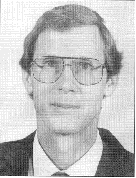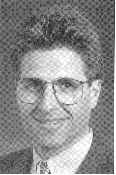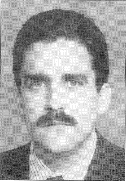Once again, the APSF Committee on Scientific Evaluation has selected projects for award of research grants. This year, three applications were selected from the 20 submitted by June 15. These three, as has been typical every year, represent a diverse spectrum of safety-related research.
As has been the policy over the past few years, feedback is given to principal investigators of applications that are not funded if such information is requested. Thus, the APSF Grants Program is intended not only to fund a few projects but also to play an advisory role with the objective of assisting investigators to design studies that will produce credible results and could possibly obtain funding from other sources.
The winners this year:
“A critical-events prompter for the anesthesia workstation.”

W.B. Murray, M.D.
Drs. W. Bosseau Murray and A.J.L. Schneider
Building on the trend toward inclusion of interactive monitor screens in anesthesia workstations, Dr. Murray and colleagues at the Department of Anesthesia, The Pennsylvania State University, College of Medicine, Milton S. Hershey Medical Center propose to design and test a ‘critical events prompter’ which would become part of the workstation.
In this two-year project, they will develop and clinically test multi-media programs based on the ACLS protocol to be used as interactive prompters to remind and assist in the management of intraoperative cardiac arrest. This effort is based on the general belief that rarely-used responses to critical events are remembered incompletely, applied incorrectly or not ever initiated. Prompting for correct responses is expected to improve performance.
Coincidentally, and unrelated to the review of the proposal, this same group was presented with the APSF award for the best patient safety related scientific exhibit at the 1993 annual meeting. The exhibit included examples of multi-media presentations and a prototype of the interactive display that would be used in the study.
“Do benzodiazepines effect episodic desaturation during sleep in surgical outpatients?’

T. Andrew Bowdle, M.D.
T. Andrew Bowdle, M.D.
This application explores an area that is a relatively new direction for anesthesia patient safety. Dr. Bowdle poses the hypothesis that exclusion of benzodiazepines from the anesthetic regiment will reduce the incidence of episodic hypoxemia during the first two postoperative nights in healthy surgical outpatients. Studies of breathing during sleep will be performed in the home of patients during one night of the week prior to surgery and during the first two postoperative nights. Interestingly, the observation that healthy patients undergoing minor, elective surgery are hypoxic for at least 24 hours following surgery was observed in 1962. Other studies since have corroborated this, although an association with mortality or morbidity has never been demonstrated. Still, Dr. Bowdle and his colleagues presented an effective argument for why postoperative episodic hypoxemia should be avoided if possible. Their emphasis on the possible role of benzodiazepines arises from previous studies suggesting that these drugs may cause or exacerbate sleep-disordered breathing. Dr. Bowdle and his co-investigators are at the Department of Anesthesiology, University of Washington in Seattle.
“Does the technique of rewarming after cardiopulmonary bypass affect the extent of neuropsychological dysfunction?”

Mark F. Newman, M.D.
Dr. Mark Newman
Dr. Newman and colleagues at the Duke Heart Center will examine a question that could affect the postoperative recovery of the substantial number of patients who undergo coronary artery bypass each year. They hypothesize that a precisely controlled, staged rewarming from hypothermic CPB will decrease the incidence of jugular venous desaturation, quantitative EEG signs of ischemia and, most importantly, the incidence and severity of neuropsychologic deficits after CPB. This idea derives in part from results of their previous studies in which it was determined that rewarming from hypothermic CPB is associated with a substantial degree of desaturation at the jugular bulb, implying an imbalance of cerebral oxygen apply and demand. Dr. Newman hopes that the knowledge generated from this investigation will have immediate applicability to cardiac surgery.
Dr. Cooper is an Associate Professor of Anaesthesia at Harvard Medical School and director of Biomedical Engineering, Massachusetts General Hospital. He is the chairman of the APSF Committee on Scientific Evaluation.

